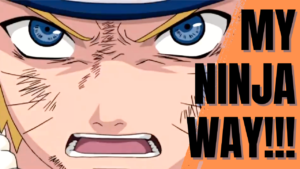Let’s learn Japanese with Rei’s quote from Hokuto no Ken (Fist of the North Star).
CONTENTS
Video
Rei’s Quote
Japanese: てめぇらの血は何色だ!
Romaji: temēra no chi wa nani-iro da!
English: What’s the colour of your blood!
Analysis
てめえ means “you” in a very aggressive and rude way and ら is the suffix which makes it plural, so てめえら means “you all” or “you guys”.
There is another similar suffix which is たち but with てめえ, ら is more commonly used than たち as ら also implies the speaker is looking down on the people, so it’s often used with disrespectful pronouns like てめえ, おめえ, 貴様 and so on, whereas たち doesn’t have that kind of nuance.
の is the possessive particle and 血 means “blood” so てめえらの血 means “your blood”. And は is the particle which indicates the topic of the sentence.
何色 is combined with 何 meaning “what” and the suffix 色 meaning “colours” so 何色 means “what colour”. By changing the suffix, you can modify the question, for example, 何人 (なにじん) meaning “what nationality”, 何語 meaning “what language”, and 何味 meaning “what flavour”. Remember that you read it as なに, not なん. It’s read as なん when it’s attached with a counter suffix such as 何時 meaning “what time”, 何歳 meaning “how old ” and 何人 (なんにん) meaning “how many people”.
Lastly, だ in the end of the sentence which contains a question word like 何 (what), 誰(who), どこ(where) and so on, is used to demand information in male speech which often sounds strong and authoritative. For example, when a teacher finds cigarettes in a student’s bag, he would say これはなんだ? meaning “what is this?”, or when a boss in the office is looking for his subordinate Yamada, he would say 山田はどこだ? meaning “where is Yamada?”.
Examples
Personal Pronoun + ら (plural)
こら!お前ら、うちの壁に落書きするな!
kora! omaera, uchi no kabe ni rakugaki suru na!
Hey! You guys, don’t draw graffitis on the wall of my house!
集団で万引きした?本当にバカな奴らだ。
shūdan de manbiki shita? hontō ni baka na yatsura da.
They shoplifted in a group? They are real idiots.
こいつら、まとめて倒してやる!
koitsura, matomete taoshite yaru!
I will beat these guys altogether!
When it’s used with the first person pronoun (e.g. 僕ら, 私ら, etc), it implies the speaker’s humbleness.
何 + Suffix (what …)
最寄りは何駅ですか?
moyori wa nani-eki desu ka?
What is the closest train station?
何大学出身?
nani-daigaku shusshin?
What university did you graduate from?
休みは何曜日?
yasumi wa nan-yōbi?
What days are your days-off?
何曜日 (what day of the week) is the exception. It’s read as なん even though it’s not a counter.
Interrogative + だ (used to demand information in male speech)
金はどこだ?早く出せ!
kane wa doko da? hayaku dase!
Where is the money? Give it to me now!
大事な会議に遅れた理由は何だ?
daiji na kaigi ni okureta riyū wa nan da?
What is the reason why you were late to the important meeting?
正直に言え。黒幕は誰だ!
shōjiki ni ie. kuromaku wa dare da!
Tell me the truth. Who is the mastermind?
When you’re talking to yourself, both males and females can use it:
なんだ、これ?おいしい!
nanda, kore? oishii!
What is this? Delicious!
You can add the sentence ending particle:
お前、誰だよ!
omae dare da yo!
Who the hell are you?
Support Easy Peasy Japanesey
If you enjoy our content, please consider supporting Easy Peasy Japanesey. Your support will help keep us going. Thanks for all your support!


